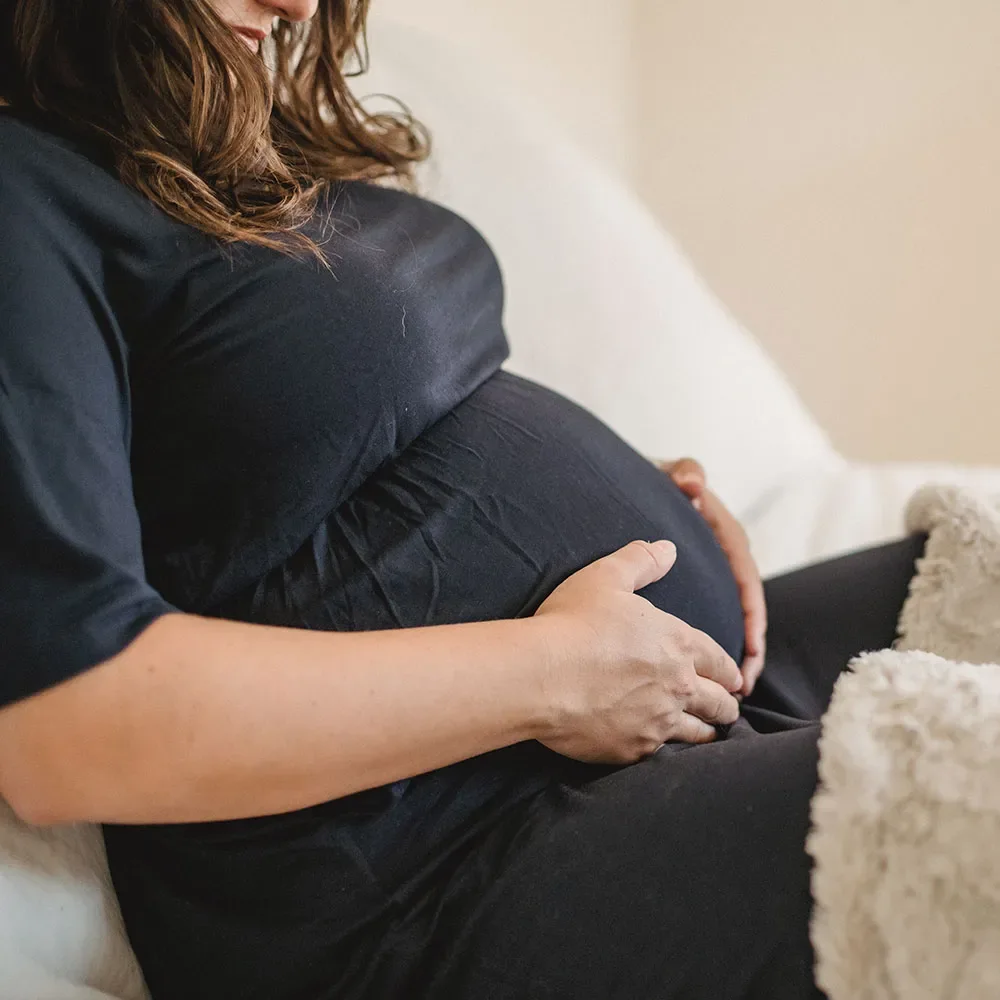Here's what we'll cover
Here's what we'll cover
Here's what we'll cover
Since the COVID-19 pandemic began, energetic research efforts have revealed much about this virus. There’s still a lot to unveil, but one issue we’re learning more about is the relationship between COVID and weight loss. It turns out that there is a relationship between severe COVID-19 and weight loss—read on to learn more.
Does COVID make you lose weight?
Like many acute or chronic illnesses, severe COVID-19 does appear to cause people to lose weight from both fat and muscle loss. In extreme cases, this can be as high as 5% or more of body weight, also called cachexia (unhealthy weight loss, usually due to chronic illnesses like cancer) (Anker, 2020; Di Filippo, 2021). What’s more, not only is significant weight loss related to the illness seen in hospitalized patients, but malnutrition can also affect patients who deal with COVID at home or in outpatient settings (Di Filippo, 2021).
But before you get excited about a possible silver lining to this disease, let’s be clear that COVID-related weight loss isn’t a benign cosmetic side effect that some lucky people just happen to experience. Rapid weight loss can cause health problems like heart arrhythmias and electrolyte abnormalities (Panuganti, 2022). Let’s unpack some of these concepts.
How does COVID cause weight loss?
There are a few ways that COVID could cause weight loss. Some are intuitive, but other aspects of the relationship between COVID and fat cells are only beginning to be understood.
COVID and weight loss are linked due to fat and muscle loss. This may be due to lifestyle-level factors like malnutrition from decreased food intake, low appetite, and low physical activity levels due to feeling tired or being sedated (Anker, 2020). Loss of taste and smell is a well-known symptom of COVID and can easily put you at increased risk of malnutrition due to decreased food intake (di Filippo, 2021).
Additionally, 1 in 5 COVID patients report uncomfortable gastrointestinal symptoms, like nausea, vomiting, diarrhea, and abdominal pain, which can affect a person’s nutritional status (Tariq, 2020). Plus, since COVID is a respiratory illness where people often struggle to breathe, it can be difficult for people to consume the same number of calories they’re used to.
Weight loss from COVID can also be related to the disease process on a cellular level. COVID causes significant inflammation throughout your body’s tissues. This is not only energetically demanding, but also causes serious metabolic imbalance of many key body systems—like your kidneys and heart. These factors and more can result in body wasting and rapid weight loss (Anker, 2020).
The relationship between coronavirus and fat cells
Interestingly, it also looks like there are some specific ways the coronavirus attacks fat tissue. However, it doesn’t ‘shrink’ fat cells in the same way that simple calorie restriction or exercise would—instead, it directly infects, damages, and uses them as a reservoir to replicate (Basolo, 2021).
Coronavirus appears to enter our cells thanks to the angiotensin-converting enzyme 2 (ACE-2) receptor. The ACE-2 enzyme happens to not only be abundant in our respiratory system, but it also plays a crucial role in adipose (fat) cell health. So, since coronavirus infects our cells through the ACE-2 receptor, this means that fat cells are especially vulnerable to harboring infection—and could be why people with excess body fat experience more severe COVID and have worse clinical outcomes (Li, 2020).
How does weight affect COVID?
Many people know that having overweight (a body mass index of over 25) or obesity (BMI over 30) are risk factors for a person experiencing more severe COVID. Having comorbidities—underlying health conditions—like obesity make a person six times as likely to be hospitalized with COVID and 12 times as likely to die from it (Cascella, 2022).
A higher body weight can make COVID more dangerous in several ways; it can cause a person to have higher airway resistance (more difficulty breathing), weaker respiratory muscles, and less effective gas exchange in the lungs (Li, 2020). People who struggle with obesity also tend to have other health issues like type 2 diabetes, high blood pressure, and heart disease, which elevate a person’s risk of severe illness (Anjorin, 2021).
Fortunately, the development of safe and effective COVID vaccines has enabled millions of people worldwide, with and without comorbidities, to prevent COVID infection and severe illness (Carcarella, 2022).
How to gain weight after COVID
It may sound surprising, but significant weight loss can persist long after a person is infected with COVID. An extensive review of studies that explored people’s experiences with ‘long COVID’ (symptoms that continue even after a person has recovered) found that over 8% of COVID survivors experienced persistent weight loss (Fahriani, 2021). This means that they hadn’t yet been able to regain their lost weight.
If you’ve experienced weight loss from COVID, you may feel concerned about how to regain it in a healthy way and help your body tissues to recover from metabolic issues of wasting and malnutrition. Here are some tools you can use to promote healthy weight gain and overall recovery:
1. Get plenty of Vitamin D
Vitamin D is essential for muscle health and growth, especially if you’re malnourished or experienced muscle wasting after COVID. If you think you may be vitamin D deficient after COVID, your healthcare provider can run a simple blood test and recommend over-the-counter oral supplements (Latham, 2021).
2. Try to address gastrointestinal symptoms
Many COVID patients experience gastrointestinal distress like nausea, diarrhea, and abdominal pain, making it difficult to feel comfortable eating a healthy amount of food and regain unintentional weight loss (Tariq, 2020). If you continue to experience GI symptoms during your recovery from COVID and aren’t able to regain lost weight, talk to your healthcare provider about your particular symptoms and identify some specific tools you can use to feel better and feel comfortable eating normally.
3. Eat healthy fats and proteins
Since COVID-related weight loss can result from eating less, it’s important to reintroduce normal meal amounts gradually. And even though many people experience symptoms of lost smell and taste, it’s important to ensure that those calories you’re reintroducing are nourishing and healthy, even if very sweet, salty, or processed foods might be more appealing at the moment.
Eating a balanced variety of foods rich in nutrients (including lean protein, nuts, whole grains, and healthy fats like olive oil) is central to any healthy diet for good weight maintenance and a healthy immune system. Public health experts and healthcare professionals have long studied the Mediterranean diet’s role in maintaining good health (not to mention healthy weight management). This diet plan has a lot to offer people trying to regain weight healthily (Rishor-Olney, 2022).
DISCLAIMER
If you have any medical questions or concerns, please talk to your healthcare provider. The articles on Health Guide are underpinned by peer-reviewed research and information drawn from medical societies and governmental agencies. However, they are not a substitute for professional medical advice, diagnosis, or treatment.
References
Anjorin, A. A., Abioye, A. I., Asowata, O. E., et al. (2021). Comorbidities and the COVID-19 pandemic dynamics in Africa. Tropical Medicine & International Health , 26 (1), 2-13. Retrieved from https://onlinelibrary.wiley.com/doi/full/10.1111/tmi.13504
Anker, M. S., Landmesser, U., von Haehling, S., et al. (2020). Weight loss, malnutrition, and cachexia in COVID-19: facts and numbers. Journal of Cachexia, Sarcopenia and Muscle , 12 (1), 9-13. Retrieved from https://onlinelibrary.wiley.com/doi/full/10.1002/jcsm.12674
Basolo, A., Poma, A. M., Bonuccelli, D., et al. (2021). Adipose tissue in COVID-19: detection of SARS-CoV-2 in adipocytes and activation of the interferon-alpha response. Journal of Endocrinological Investigation, 45 (5), 1021-1029. doi:10.1007/s40618-022-01742-5. Retrieved from https://www.ncbi.nlm.nih.gov/pmc/articles/PMC8852916/
Cascella, M., Rajnik, M., Aleem, A., et al. (2022). Features, evaluation, and treatment of coronavirus (COVID-19). StatPearls . Retrieved on Aug. 17, 2022 from https://www.ncbi.nlm.nih.gov/books/NBK554776/
Di Filippo, L., De Lorenzo, R., D'Amico, M., et al. (2021). COVID-19 is associated with clinically significant weight loss and risk of malnutrition, independent of hospitalisation: a post-hoc analysis of a prospective cohort study. Clinical Nutrition , 40 (4), 2420-2426. Retrieved from https://www.sciencedirect.com/science/article/pii/S0261561420305896
Fahriani, M., Ilmawan, M., Fajar, J. K., et al. (2021). Persistence of long COVID symptoms in COVID-19 survivors worldwide and its potential pathogenesis-a systematic review and meta-analysis. Narra J , 1 (2). Retrieved from https://narraj.org/main/article/view/36/22
Garcia, M., Seelaender, M., Sotiropoulos, A., et al. (2019). Vitamin D, muscle recovery, sarcopenia, cachexia, and muscle atrophy. Nutrition , 60 , 66-69. Retrieved from https://www.sciencedirect.com/science/article/abs/pii/S089990071830697X
Latham, C. M., Brightwell, C. R., Keeble, A. R., et al. (2021) Vitamin D promotes skeletal muscle regeneration and mitochondrial health. Front. Physiol. 12 :660498. doi:10.3389/fphys.2021.660498. Retrieved from https://www.frontiersin.org/articles/10.3389/fphys.2021.660498/full
Li, L., Spranger, L., Soll, D., et al. (2020). Metabolic impact of weight loss induced reduction of adipose ACE-2–potential implication in COVID-19 infections?. Metabolism , 113 , 154401. Retrieved from https://www.sciencedirect.com/science/article/pii/S0026049520302651
Martinchek, M., Beiting, K. J., Walker, J., et al. (2021). Weight loss in COVID-19–positive nursing home residents. Journal of the American Medical Directors Association , 22 (2), 257-258. Retrieved from https://www.jamda.com/article/S1525-8610(20)31017-3/fulltext
Panuganti, K. K., Nguyen, M., & Kshirsagar, R. K. (2022). Obesity. StatPearls . Retrieved on Aug. 17, 2022 from https://www.ncbi.nlm.nih.gov/books/NBK459357/
Rishor-Olney, C. R. & Hinson, M. R. (2022). Mediterranean diet. StatPearls . Retrieved on Aug. 17, 2022 from https://www.ncbi.nlm.nih.gov/books/NBK557733/
Tariq, R., Saha, S., Furqan, F., et al. (2020). Prevalence and mortality of COVID-19 patients with gastrointestinal symptoms: A systematic review and meta-analysis. Mayo Clinic Proceedings; 95 (8), 1632-1648. doi:10.1016/j.mayocp.2020.06.003. Retrieved from https://www.ncbi.nlm.nih.gov/pmc/articles/PMC7284248/










